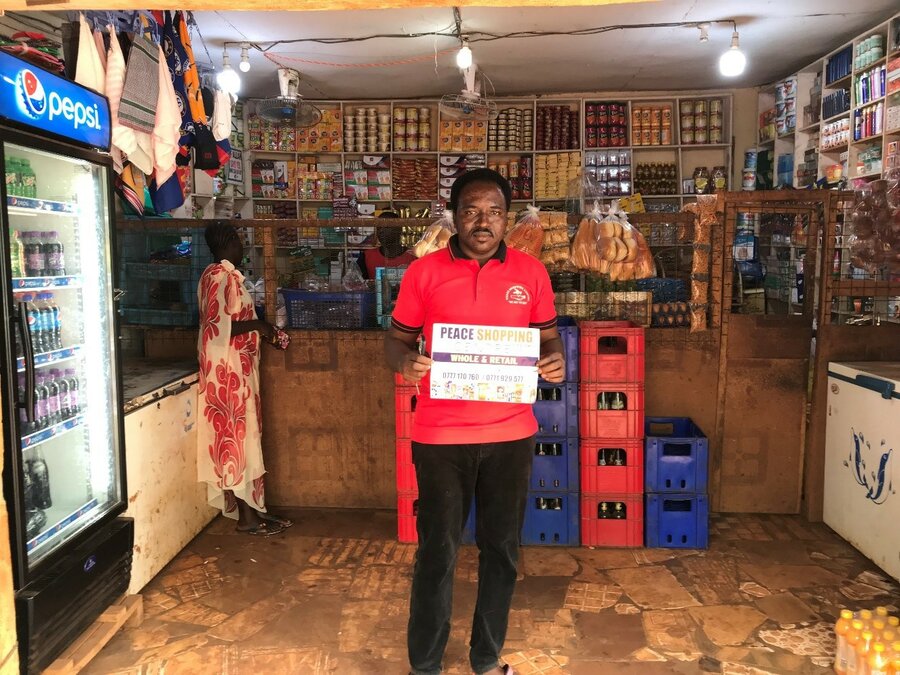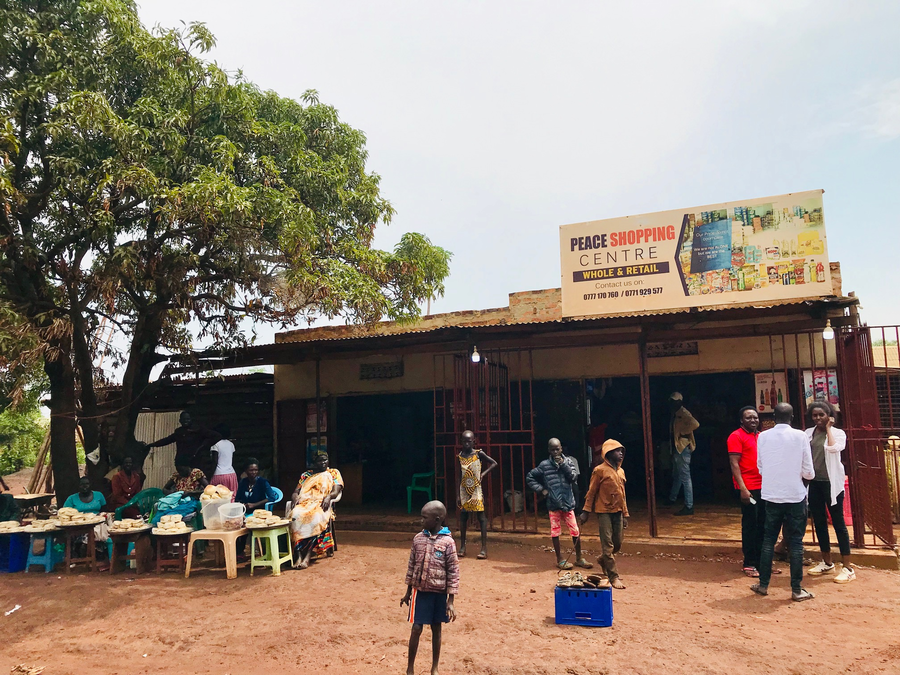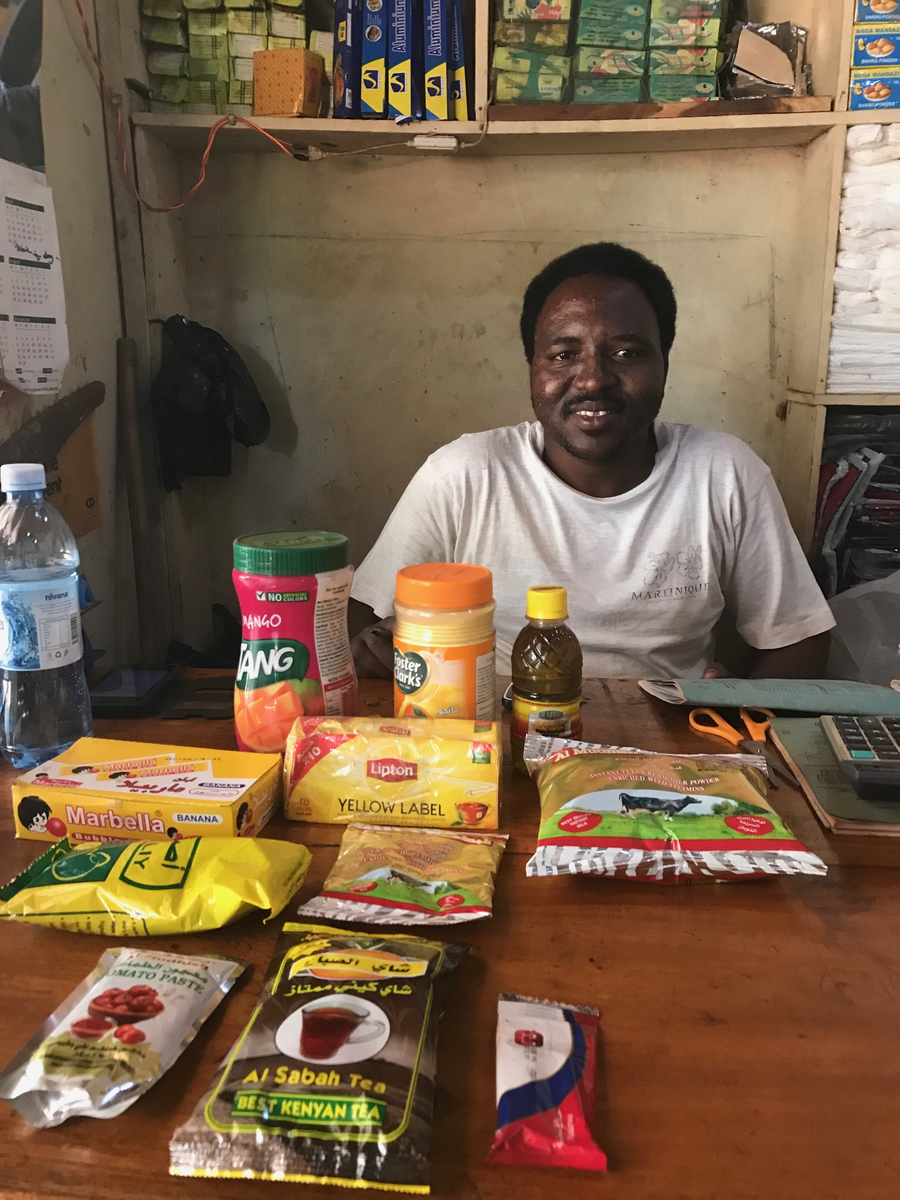The man who sells peace

By Selina Chan and Lucia Gobbi
Gamar had to plan his escape from rural South Sudan when a simple note changed his life. The message was short but clear: his settlement would be attacked at 5 a.m. the next morning.
After anxiously waiting for the local police to arrive and drive them to safety, at 4:47 a.m. he and 20 other villagers finally pulled away from the village in a truck, with gunshots firing behind them.
"The bullets were like rain", he says. "One tire was punctured but we did not stop. Eventually, we reached the next village."
From there, after days with scarcely any food, water or sleep, he found his way to the Kiryandongo Refugee Settlement in central Uganda.

That was in 2015. Today, Gamar is the owner of a shop called the Peace Shopping Centre — his is a story of success as an entrepreneur and retailer engaging with the World Food Programme (WFP). You would never guess that he has escaped death not only once, but three times, fleeing first his home in North Darfur and again Khartoum before his final journey from South Sudan.
Gamar and his nine siblings used to support their parents with family businesses which included retail stores just like the ones he now owns. The majority of his customers are recipients of the cash assistance WFP provides to 40,000 people, mostly from South Sudan, in the settlement.
"I understand what people have lost and so, if I can, I want to help."
WFP provides training for small retailers to help them improve their businesses. Gamar's business seems to have come further along than the rest.

What are the secrets to his success? Relationships are key, he says, not only good for business but essential for it to survive. Trust from his suppliers allows him to buy goods on credit, increasing his disposable cash each month. And trust from his customers is what keeps them coming back.
Gamar has his personal phone number displayed on the door of his store and lends his customers money for medical bills, weddings, or even starting a business.
"I understand what people have lost and so, if I can, I want to help."
His Peace Shopping Centre is so named because he has seen so much fighting, all he wants is peace, he says. Gamar adds he finds solace in bringing a bit of peace to his customers.
Born to be an entrepreneur
Why did he decide to open a business? "It was the only option," he says. He comes from a family of entrepreneurs and his father instilled a business mindset into his children.
"You need to always look for the gaps in the market."
When he realized there was nowhere for the local community to come together and connect, he opened an entertainment venue. Soon after followed a retail store and wholesale shop. When he noticed that firewood was becoming scarce and increasingly dangerous to collect, he quickly acted to meet the demand opening his charcoal shop. "You need to always look for the gaps in the market," he says.
Gamar advises other retailers to manage their cash flow, understand their costs and get to know their local commerce office. "The most important thing is that you play by the rules," he says. His combination of trust and business sense has resulted in his revenue doubling in just one year to 3 million Ugandan shillings per month — that's US$720.
Where markets are functioning, WFP provides people with cash transfers, allowing them to shop in stores owned and operated by local retailers. This gives people choice and boosts the local economy — this year to date WFP contributions in cash have totalled US$65 million.
WFP continues to work with retailers like Gamar in Uganda to enhance linkages between farmers and markets, improve wholesale structures and provide capacity-strengthening activities so all businesses in the market can flourish as his has.
"If there was peace in Darfur I would return home in an instant. For now, I will do my best to build peace wherever I am."
"How much time do we have?" Gamar jokes when he is asked what his goals are. His next plan: goats. Recognizing a lack of meat in the market, Gamar is already strategizing about the special grass he will import from Sudan to make his new business more profitable.
Ultimately, his goal is to recover all that his family lost in the war. Owning his business means that he can support his parents, invest in education for his younger brother to study in Kampala, and most importantly create the stability that has been taken away from him so many times. "If there was peace in Darfur I would return home in an instant. For now, I will do my best to build peace wherever I am."

